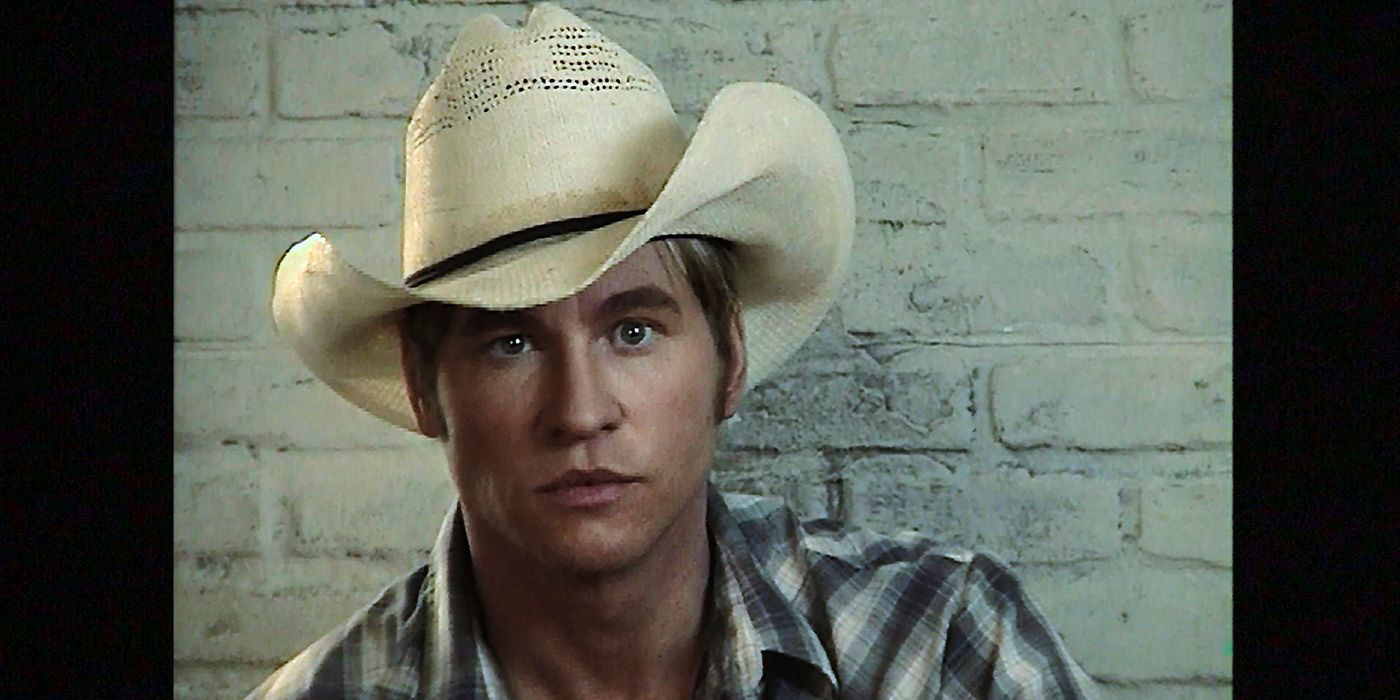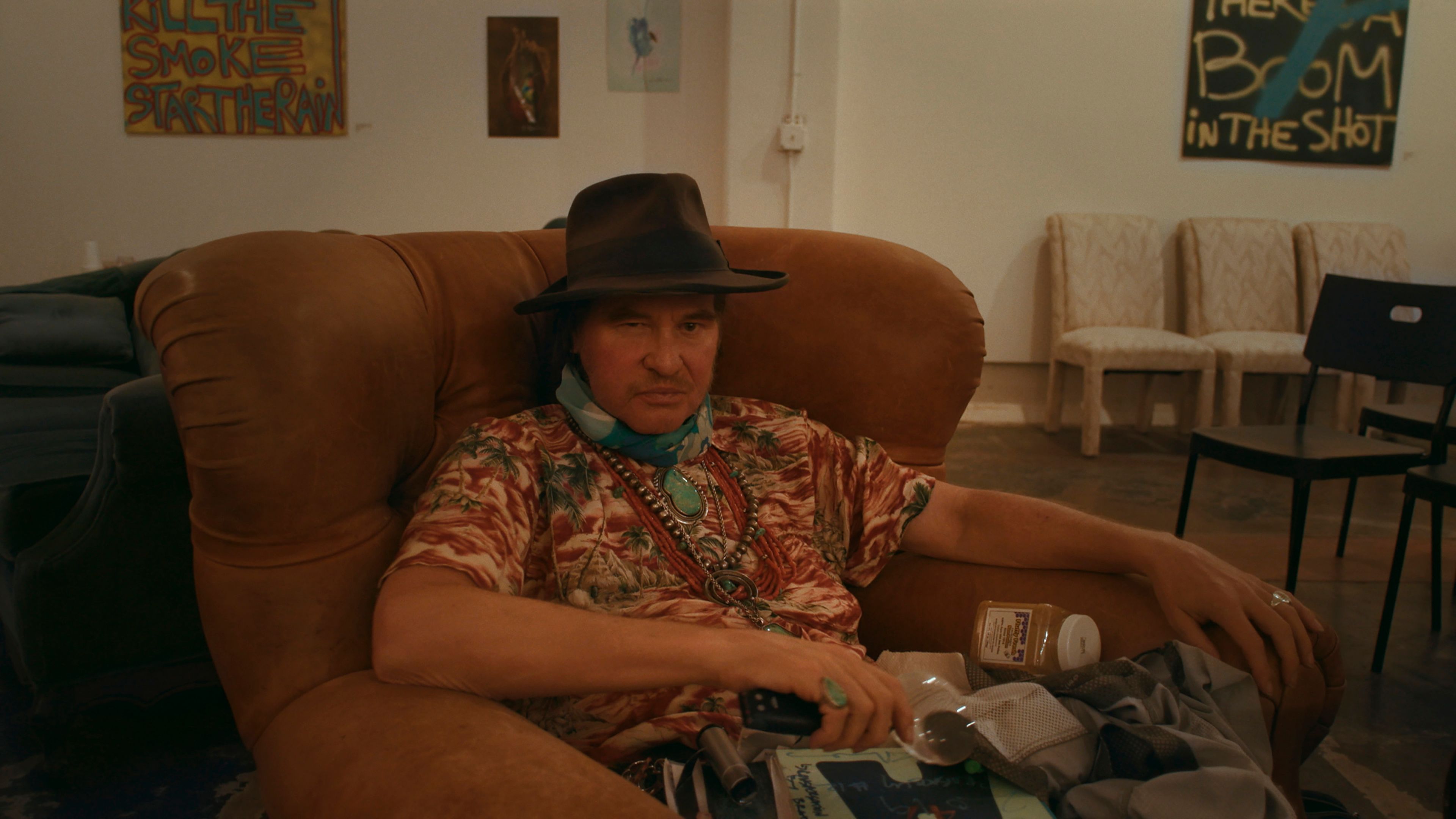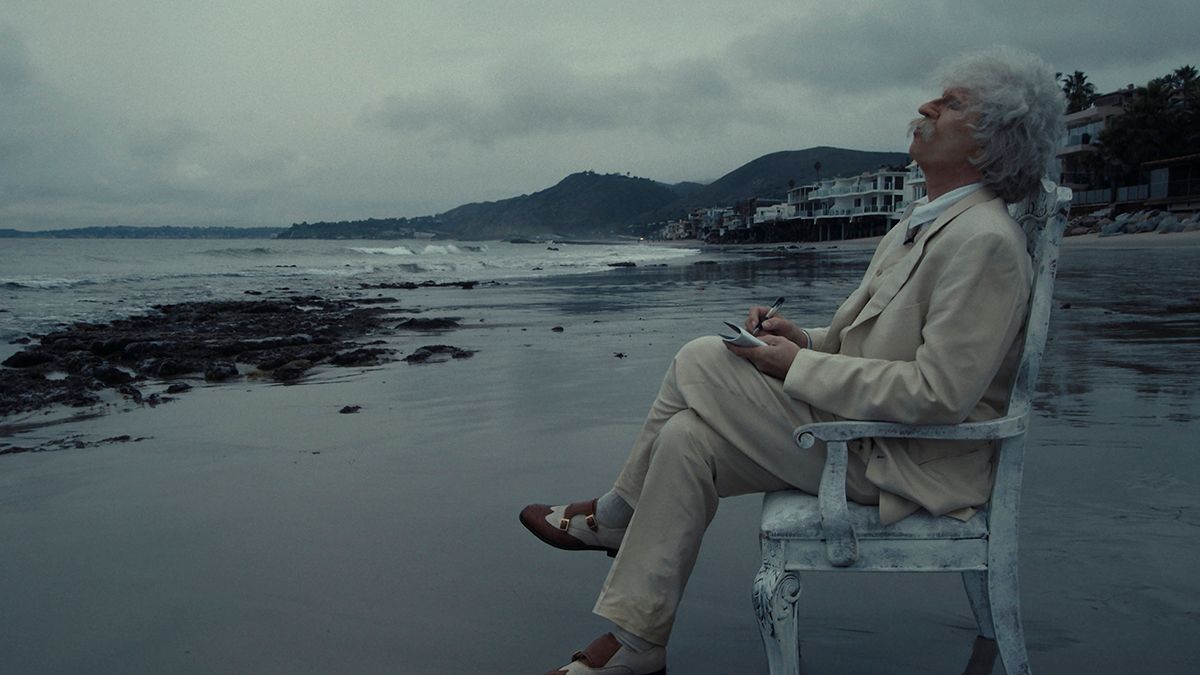One of the things the new documentary Val makes clear is that Val Kilmer never saw himself as a “movie star.” He suffered from a similar ailment as Brad Pitt, which is that by virtue of his handsomeness, it was difficult to take him seriously as anything more than a pretty face no matter how talented he may be, and while Pitt wisely pivoted to supporting roles and working with auteurs that could put a spotlight on his performances, Kilmer, for a variety of reasons, never got that chance, and now he likely never will. Although Kilmer is still alive and making the best of the hand he’s been dealt, his documentary feels like a curtain call of sorts. It’s a final bow for a man who defined his life by his acting, and now due to health reasons, can no longer pursue that particular form of artistry, so he’s been forced to find other creative outlets. Through a wealth of footage that Kilmer shot himself over the years as well as narration written by Kilmer but spoken by his son Jack Kilmer (who does sound like a younger version of his father), Val paints a bittersweet portrait of an artist as a man who has come to terms with what his life is now but also feels the need to show us how he got here.
If you’re wondering, “Hey, why haven’t I seen Val Kilmer in movies in a while?” the sad reason is that he was stricken with throat cancer, and while thankfully the treatment removed the cancer, it also damaged his throat and vocal cords to where he can only speak through a hole in his neck. It’s left the instrument of a Julliard-trained actor speaking with a guttural, gravelly tone, so he hands the narration of the story to his son Jack, and Val proceeds to tell us his life story from his childhood, to the loss of his talented brother at a young age, to finding stardom, to the missteps he made along the way, and more. The film cuts between what Kilmer believes are his major movies—Top Secret!, Top Gun, The Doors, Tombstone, Batman Forever, Heat, and The Island of Dr. Moreau—and stories about his life, his parents, and how he lives now with an ailment that has robbed him of his speech, but not an artistic voice that still feels the need to create.
Kilmer is well aware of his reputation as being “difficult”, and he attributes it to his desire to get things right as an actor. He didn’t do the sequel to Batman Forever, because he felt Batman, while a character he loved, didn’t afford him much room to give a performance, while the critically-reviled flop The Saint, gave him the opportunity to play ten characters in one. In some ways, Kilmer was oddly a little before and after his time. He wanted to be taken seriously as an actor, but he was in an 80s/90s world where A-listers didn’t work with indie auteurs even though Kilmer made his own audition tape and flew all the way to London to personally give that tape to Stanley Kubrick for the chance of being in Full Metal Jacket. Yes, there were silly movies in Kilmer’s filmography, but he always took his craft with the utmost seriousness, a seriousness that others found to be arrogant and off-putting, thus harming the roles he was able to get in the future despite his ability.
The film’s central dichotomy is the actor who lives in our mind—Iceman, Doc Holliday, Jim Morrison—and the real human being who now is trying to find his place in the world without the craft he devoted his life to. Val makes itself uplifting in showing how Kilmer never gives into despair. He acknowledges the darkness, and then openly says that his faith (Christian Scientist), his art, and his family are what sustain him. Kilmer doesn’t want our pity, but he does want our understanding. There are times when this tips a little too much in his favor (although he acknowledges that he’s been cruel and unkind in his life, at every conflict point, he’s shaded in a favorable light), but Val is not a hagiography as much as it’s about a man discovering new purpose and not losing his identity even when that identity is dealt a serious blow through events beyond his control.
Val allows Kilmer to retake control of his legacy, as he likely would have done had he not lost his voice to cancer. Whether it was through the Mark Twain project he had been laboring on for ten years or some director understanding that Kilmer had always been the goods despite his industry reputation, the actor was due for a renaissance that sadly never arrived. Val makes the case that Kilmer deserves this recognition not because he was a famous Hollywood star, but because he was an actor devoted to his craft, and an artist who continues to make space not only for himself but for others. With this documentary, Kilmer gets to say thanks to the fans who want him to sign glossies of Iceman and make it out “to my wingman,” but also to ask them to see him as more than just the guy from Top Gun and Batman Forever. There’s something ironic and beautiful that a man who had his voice so weakened by cancer treatments finally gets to speak so clearly through this documentary.
Rating: A-
Val is now in theaters and arrives on Amazon Prime Video on August 6th.



